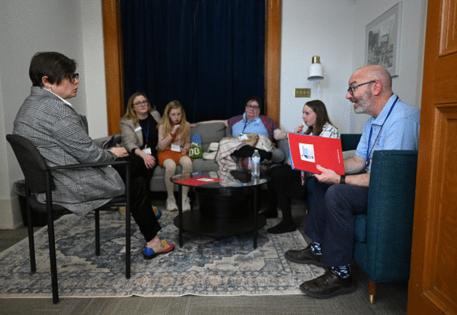Colon cancer is increasing in younger Coloradans even as death rate drops for people over 55
Published in Health & Fitness
DENVER — Kris Koehler could tell something was wrong in the summer of 2013, when he started suffering unexplained abdominal pain and his bowels behaved differently.
The Fort Collins resident’s doctor couldn’t initially figure out what was causing it, though, and gave him a list of tests to get if the pain got bad enough that he couldn’t work or exercise.
A few months later, the pain was finally bad enough that Koehler went in for the tests — and then to an emergency room later that day. He assumed he’d probably be leaving the hospital without his appendix, but a scan of his abdomen found a tumor in his colon. His doctor visited him in the hospital and was shocked to find out the diagnosis: Koehler was only 41 at the time.
“As young as I was, cancer was way down on the list of possible things I was going through,” he said.
Koehler’s experience is becoming more common. In 2020, the most recent year with data on cancer cases, 452 people under the age of 55 received a colorectal cancer diagnosis in Colorado, up from 367 a decade earlier — a 23% increase.
Colorectal cancer was the top cause of cancer death for people under 55 in Colorado, killing 88 people in that age group in 2023, followed by brain cancers and breast cancer, according to provisional data. Deaths from breast cancer have fallen since the start of the millennium, while deaths from brain cancers, which have no screening option, have bounced around over the years.
Between 2000 and 2004, an average of 76 people under 55 of colon cancer in Colorado died. From 2019 to 2023, that average was 100.
Nationwide, more than 27,000 people under 55 were diagnosed with colorectal cancer in 2020 and more than 6,500 people in that age group died that year. More recent data isn’t yet available.
It’s a “distressing” development to see deaths increasing from colorectal cancer, especially since that type of cancer is very treatable in the early stages, Koehler said.
“If it came out of nowhere, that would be one thing, but where it’s one of the most preventable cancers, it’s just sad,” he said.
...continued
©2024 MediaNews Group, Inc. Visit at denverpost.com. Distributed by Tribune Content Agency, LLC.







Comments